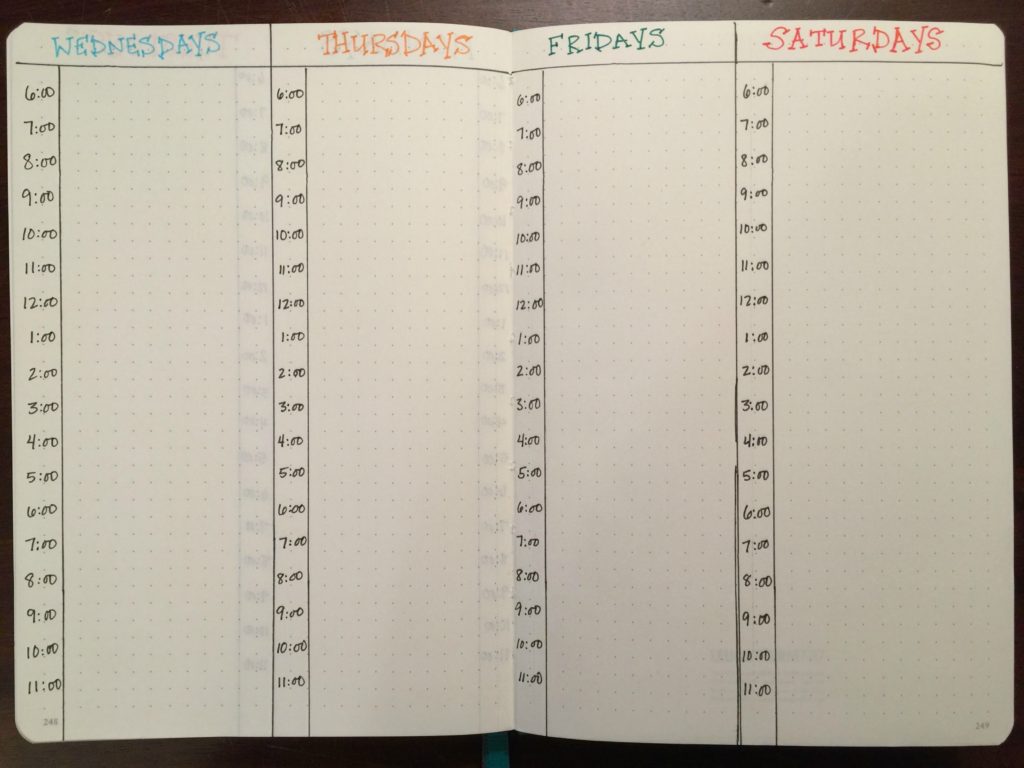 I recently held a local workshop focusing on how to rightly order the important things amidst urgent tasks in daily personal and family life, and one of the topics we discussed was our misuse of time. We often claim that we don’t have enough hours in a day, and we also seem to believe that just a little bit more time would relieve the pressure that we feel to accomplish all we need to do. I’m going to free you of the wishful thinking for the impossible — these beliefs are false!
I recently held a local workshop focusing on how to rightly order the important things amidst urgent tasks in daily personal and family life, and one of the topics we discussed was our misuse of time. We often claim that we don’t have enough hours in a day, and we also seem to believe that just a little bit more time would relieve the pressure that we feel to accomplish all we need to do. I’m going to free you of the wishful thinking for the impossible — these beliefs are false!
We don’t need more time; we need to prioritize the time that we have. More time wouldn’t diminish interruptions and distractions; it would just create more. One of the reasons that our domestic churches aren’t thriving is because we are making poor use of our hours and minutes in daily and weekly life.
Author Charles Hummel wrote, “…everyone has all the time there is — twenty-four hours a day. But what an astonishing variety in our use of that time and the results of our choices!” He goes on to say that, in the end, “how we use our time depends on our goals. We make the hours count for what we think is important” (The Tyranny of the Urgent).
What I think that he is hitting upon is this: we might say that certain things are our priorities; but ultimately, our use of time reveals the things that truly are most important to us. I think that we are mostly unconscious of this, letting urgent needs or what is most compelling at the moment be the thing to which we turn our attention. The good news? We can begin redeeming our time at any moment. I have a couple of general principles for doing just that, as well as a tool that I think can help us.
Identify What’s Important
You might think that you already know what is important, but you probably need to verbalize it and write it down. We cannot begin to use our time well before we know what should take priority. This is both an individual process and a family process, since both individuals and the collective family make up the domestic chuch in your home. Generally, parents decide what the most important activities, relationships, and events are for the family as a whole. Young children need to be told what they are, but at cetain points it might be appropriate to give your children input here as well. And of course, spouses need to have good communication about individual and family priorities. No one in our homes can read minds, and while some priorities are clear from daily rhythms and habits, others (especially ones that you want to make new habits) need to be verbally identified and communicated for everyone.
Identify What is Getting in the Way
This part takes a little bit of tracking. You might guess some of your pitfalls immediately, but other time-suckers might really surprise you. There are a lot of different methods to assessing your current use of time. Tsh Oxenreider, in her book Organized Simplicity, has some helpful exercises for assessing what takes up most of our time in a typical month. I like to focus on the daily and weekly patterns. I recommend making a log of how you spend every half hour block in a “typical” day. You could keep a log for a couple of days, or you could simply go in your memory to the most recent typical day and list its activities. Once you have done this, you can start circling all of the things that aren’t on your “important” list. Some of these are going to be the things that are sabotaging the important things in your life.
Identify What Should be Eliminated and What Needs Cut Back
At this point, you have some decisions to make. You have to make room for the important things in your life and family — it will not happen automatically. That means the things that aren’t important, or aren’t basic needs (i.e., eating, sleeping, driving to work, etc.), must either be eliminated entirely or cut back appropriately. For example, you might discover that you check your email five times a day (some on the computer, some on your phone), and you find that each of those times you end up staying in the digital world for 15 minutes or half an hour. You can probably cut back to checking your email once or twice a day and setting a time limit when you do. Suddenly you have opened up a significant chunk of time that, taken as a whole, allows you a generous time slot for something important. You can repeat this process with each item you think is occupying too much of your time.
You will also realize, however, that some things need cut…ruthlessly. I guarrentee that there is a least one thing taking up time in your day or week that doesn’t need to be there at all. More likely, it’s more than one thing. Try getting rid of it for one month and inserting in its place something important that is missing from your life. You may find that you don’t miss that thing at all, once it has been replaced with a new habit. I recommend taking inventory of your individual use of time first, and then your family’s use of time next.
A Helpful Tool: The Time Budget
Once you have walked through these three steps, you are ready to approach the hours of your day and week with fresh eyes. I recommend creating a time budget with a space for each half hour of your day. This might not be your thing at all, but hear me out. The goal is to visually see how you plan to use your time anew and have it written down for reference on a daily basis. You may not use this tool forever (especially if you are not wired that way), but it will help establish new habits. Once those habits are established, your use of time will take on its new rhythm naturally. But in the beginning, you need the reminder of what you should be doing at that moment. Without it, it is easy to let the things of the moment take over and push the important things out.
Here’s the kind of time budget that I use in my bullet journal:

I’m an analog, tactile person when it comes to organization. I created the chart with pen, but I fill it in with pencil, because you will always need to be able to tweak things as seasons of life change. If you are more of a digital person, then you might choose to create a spreadsheet and save it on your computer or print it out for easy access. Do have it accessible so that you can keep yourself accountable.
Remember, what we are doing is learning new habits. We are learning anew how to treat our time as the resource that it is. In our modern world we have many conveniences, but we also have many, many distractions competing for our time and energy. We need to develop a rhythm to our day and week that is intentional and doesn’t lead us to spend our time impulsively. Once spent, you don’t get it back. Redeeming your time will take effort, but I promise it will pay off in the thriving of your domestic church. No longer will you wish for more time; you will end your days with peace in your heart at how your time has been spent.
